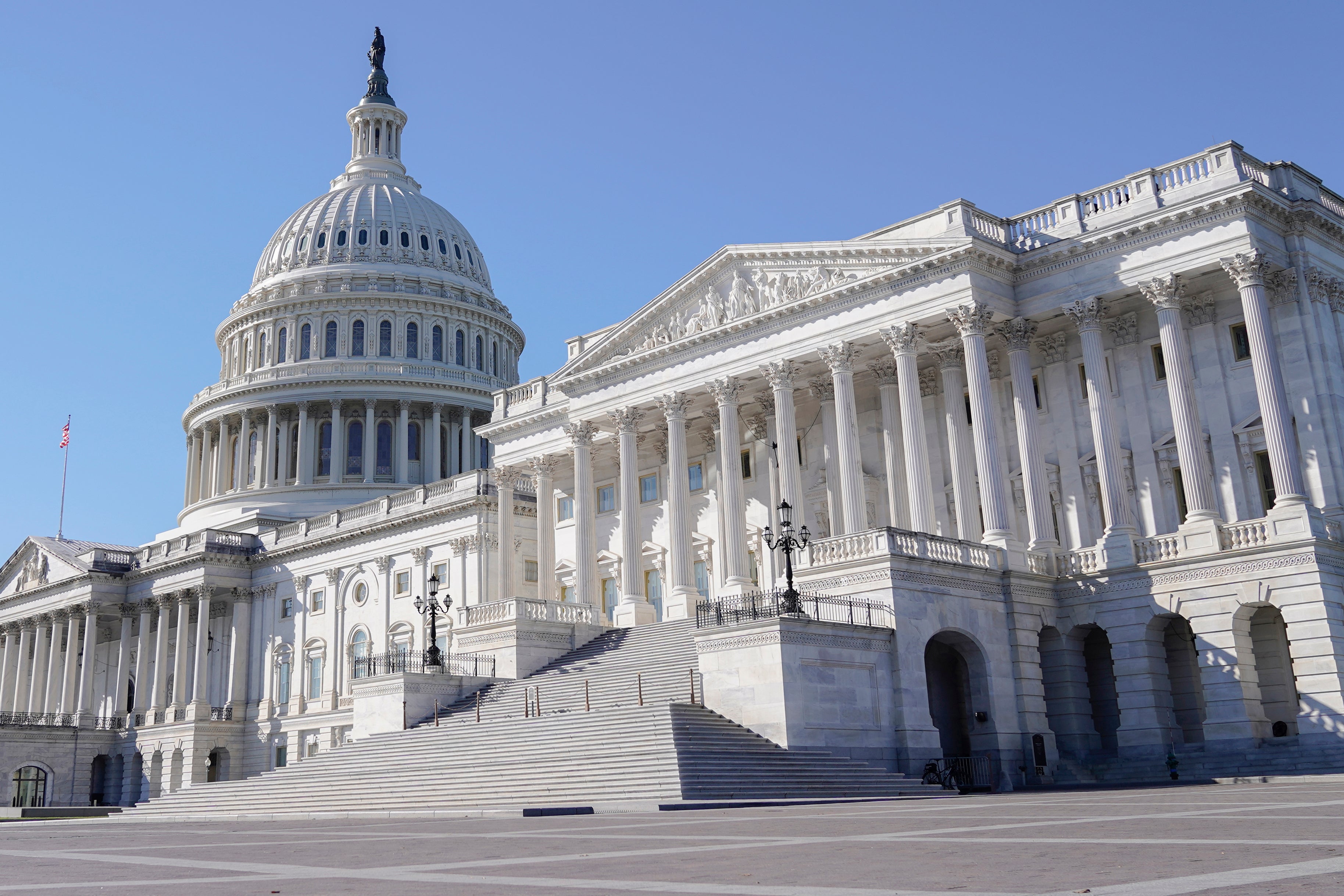Moody's lowers US credit outlook, though keeps triple-A rating
The credit rating agency Moody’s Investors Service has lowered its outlook on the U_S_ government’s debt to “negative” from “stable.”

Your support helps us to tell the story
From reproductive rights to climate change to Big Tech, The Independent is on the ground when the story is developing. Whether it's investigating the financials of Elon Musk's pro-Trump PAC or producing our latest documentary, 'The A Word', which shines a light on the American women fighting for reproductive rights, we know how important it is to parse out the facts from the messaging.
At such a critical moment in US history, we need reporters on the ground. Your donation allows us to keep sending journalists to speak to both sides of the story.
The Independent is trusted by Americans across the entire political spectrum. And unlike many other quality news outlets, we choose not to lock Americans out of our reporting and analysis with paywalls. We believe quality journalism should be available to everyone, paid for by those who can afford it.
Your support makes all the difference.The credit rating agency Moody’s Investors Service lowered its outlook on the U.S. government's debt on Friday to “negative” from “stable,” citing the cost of rising interest rates and political polarization in Congress.
Moody's retained its top triple-A credit rating on U.S. government debt, though it is the last of the three major credit rating agencies to do so. Fitch Ratings lowered its rating to AA+ from AAA in August, and Standard & Poor's downgraded the U.S. in 2011. A reduced outlook, however, raises the risk that Moody's could eventually strip its triple-A rating from the U.S. as well.
A lower rating on U.S. debt could cost taxpayers if it leads borrowers to demand higher interest rates on Treasury bills and notes. The yield on the 10-year Treasury has risen significantly since July, from about 3.9% to 4.6% Friday, an unusually sharp rise.
Some market analysts have said the August Fitch downgrade may have contributed to that increase, though most point to other factors as bigger drivers, such as the Federal Reserve's commitment to keeping its benchmark rate at a 22-year high to battle inflation.
“In the context of higher interest rates, without effective fiscal policy measures to reduce government spending or increase revenues, Moody’s expects that the U.S.'s fiscal deficits will remain very large, significantly weakening debt affordability,” the agency said in a statement.
The Biden administration criticized Moody's decision.
“While the statement by Moody’s maintains the United States’ Aaa rating, we disagree with the shift to a negative outlook,” Deputy Treasury Secretary Wally Adeyemo said. “The American economy remains strong, and Treasury securities are the world’s preeminent safe and liquid asset.”
The federal government's budget deficit jumped to $1.7 trillion in the budget year that ended Sept. 30, up from $1.38 trillion the previous year. Analysts have warned that with interest rates heading higher, interest costs on the national debt will eat up a rising share of tax revenue.
Separately, congressional lawmakers left Washington for the weekend without a plan to avoid a potential government shutdown that could occur by Nov. 17. Moody's cited congressional dysfunction as one reason it lowered its outlook on U.S. debt.
“Recently, multiple events have illustrated the depth of political divisions in the U.S.: Renewed debt limit brinkmanship, the first ouster of a House Speaker in U.S. history, prolonged inability of Congress to select a new House Speaker, and increased threats of another partial government shutdown,” Moody's said.